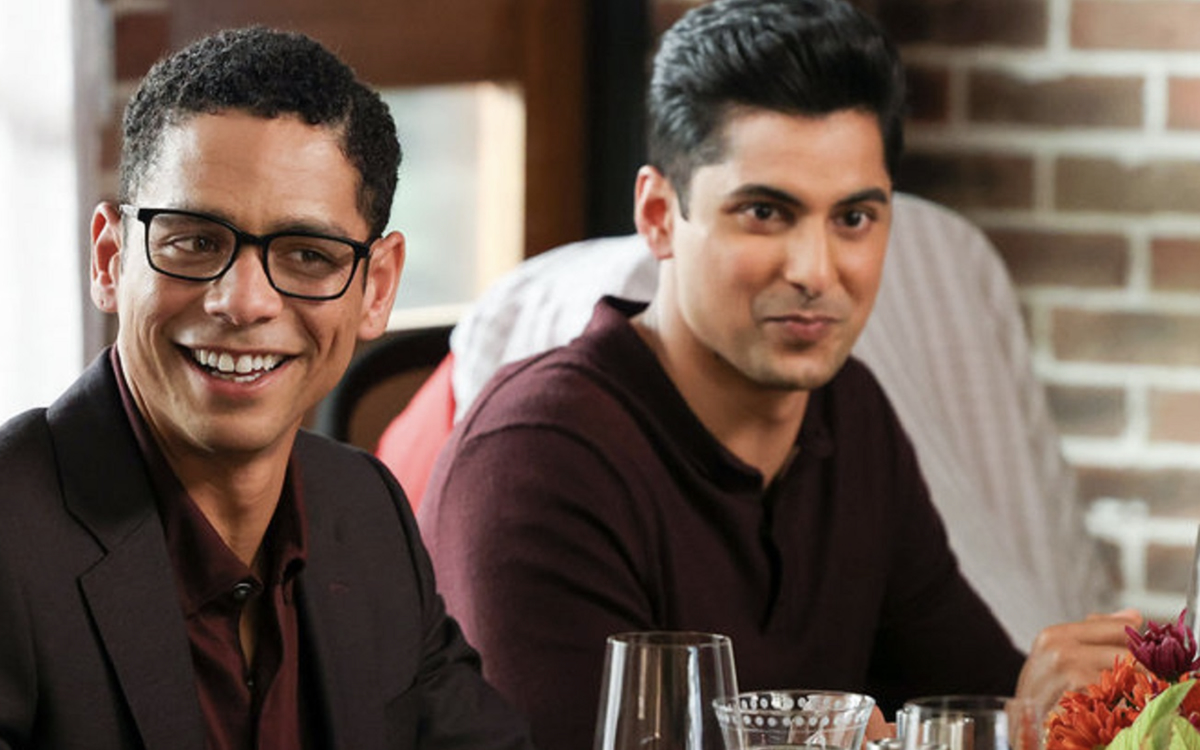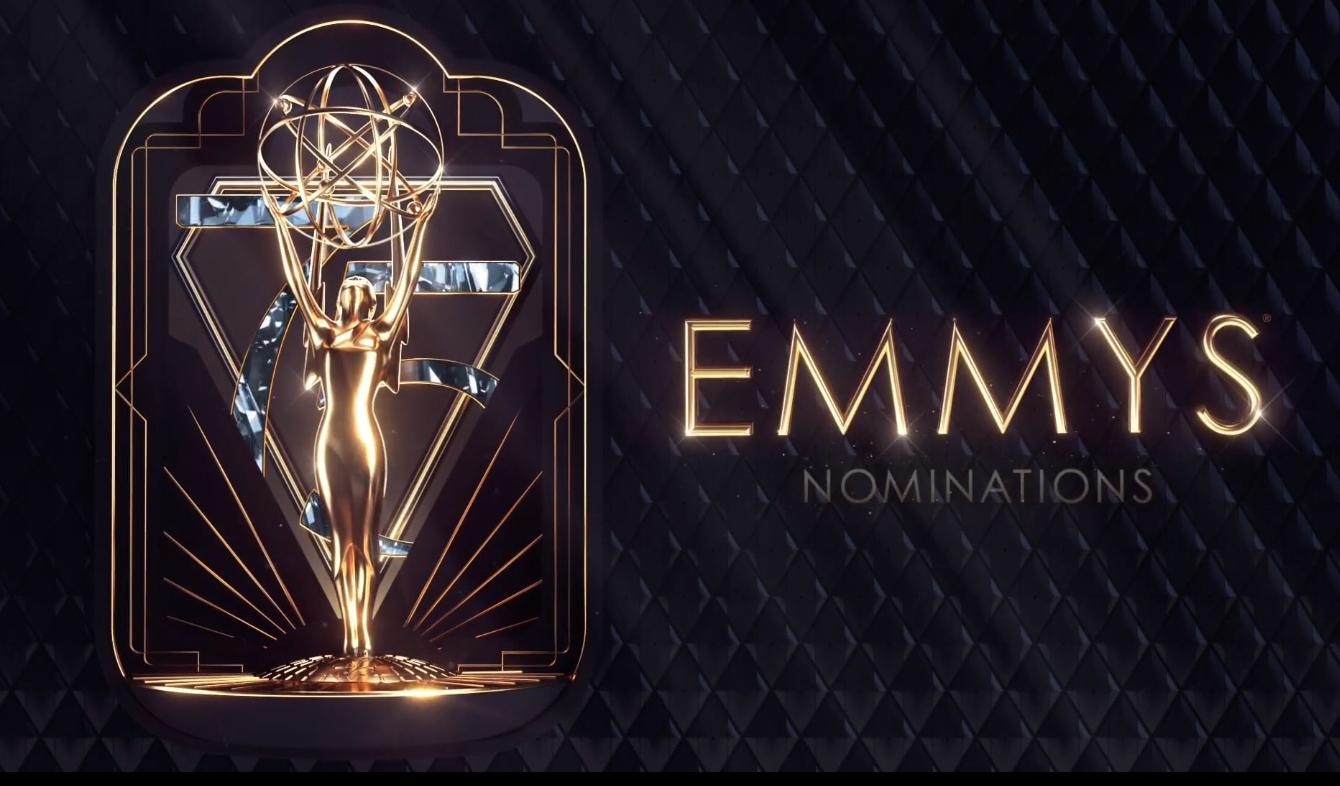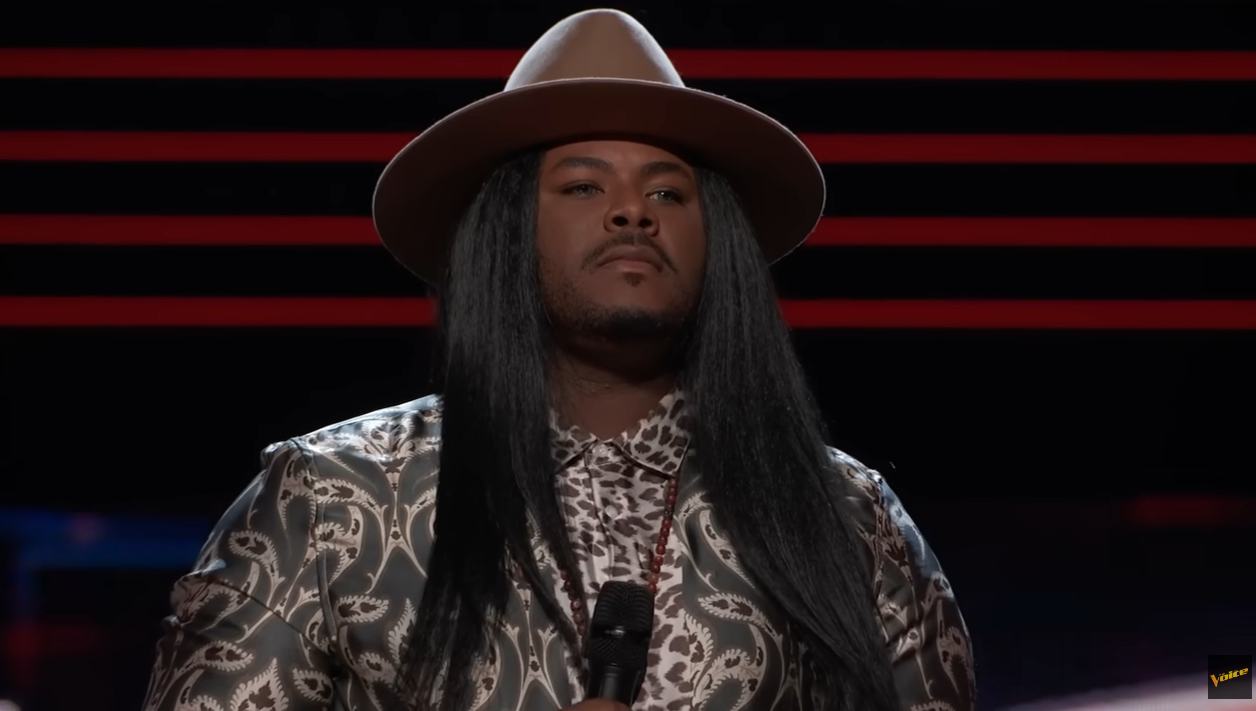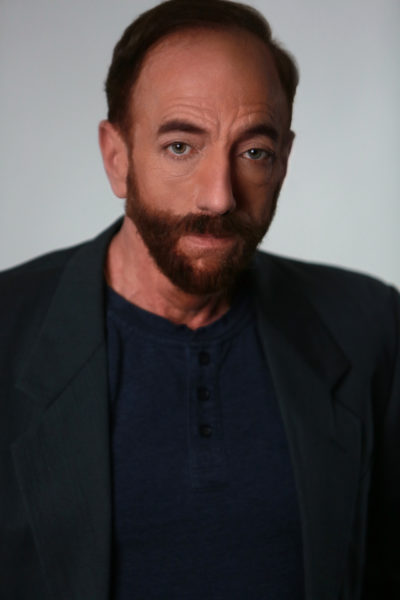Television
GLAAD TV report acknowledges progress — and some setbacks
Media watchdog challenges industry to do better

As we move further into 2022 and away from the pandemic-fatigued rollercoaster that was 2021, it’s perhaps more important than ever for us to look back together and take stock of where we are. This is particularly true when it comes to matters affecting communities that have historically taken the hardest hits in times of cultural stress – the disenfranchised among us are always the ones who slip most easily between the cracks, after all. Obviously, that includes the LGBTQ population, whose advances in recent years often tempt us to assume that, while all things may not yet be entirely equal, they are at least so much improved that we can stop paying attention.
There’s a danger, however, in taking our progress for granted. That’s why it’s wise for us all to take heed when GLAAD issues its annual “Where We Are On TV” report, as it did last week. Its findings show that, despite some shortfalls, there’s clear reason to celebrate our progress since the days when the only queer representation on our home screens was coded, stereotyped, and mostly tragic when it wasn’t played for laughs at our expense – but there’s still a long way to go before we can safely pause to rest on our laurels.
Looking at that report, which analyzes the overall diversity of primetime scripted series regulars on broadcast networks, as well as assessing the number of LGBTQ regular and recurring characters on primetime scripted cable programming and original scripted streaming series, it’s impossible not to acknowledge the good news.
While LGBTQ representation was down in last year’s report among regular characters on broadcast scripted series, this year saw a 2.8% increase in that total. Even better, this increase brings the total figure up to 11.9% – a new record-high percentage since the inaugural report 17 years ago. That means that out of the 775 series regular characters appearing in content that premiered or is expected to return between June 1, 2021 and May 31, 2022, 92 of them are LGBTQ. In addition, there are 49 recurring LGBTQ characters, bringing the total number of queer characters on broadcast television up to 141.
When we add streaming platforms to the mix, the picture gets even brighter. On original scripted programming across eight platforms (expanded from the three tracked in previous reports), there are 245 regular and 113 recurring LGBTQ characters, bringing the combined total to 358.
When it comes to cable, however, there’s a deficit. While the report from two years ago (covering the last pre-pandemic TV season) featured 215 queer cable characters, that number fell to 118 with last year’s report and has only risen by 20 this year, bringing the total to 138 (87 regular, 51 recurring) – still far fewer than counted in the prior report.
Despite that disappointing nuance, LGBTQ people clearly enjoy a greater presence on TV overall than ever before. In the more granular details, however, it’s obvious there’s room for improvement.
This year, lesbian characters represent a majority of LGBTQ regular or recurring characters on broadcast television for the first time in the report’s history. Lesbians make up 40% (56 characters), up six points from the previous season. Gay men make up 35 percent (49 characters), a decrease of five points from last year (though still an increase of 9 characters), but bisexual+ representation, after decreasing for the past two years, has increased – albeit slightly – to reflect 19% (27 characters) of the total, up a single point from the 2021 report. Notably, bisexual+ representation is still skewed heavily in favor of women (124 total characters), with bi+ men (50 characters) and bi+ nonbinary individuals (9) trailing far behind.
In addition, the number of transgender characters has increased across broadcast, cable, and streaming programming, with 42 regular and recurring transgender characters tracked across all three platforms, an encouraging improvement over last year’s 29. Of those characters, 20 are trans women, 14 are trans men, and eight are nonbinary trans characters. A further 17 characters are nonbinary and not trans. Yet there were only two asexual characters – one of which appeared on HBO Max’s now-cancelled “Genera+ion”, and one slated for inclusion in an unspecified upcoming streaming series. No asexual characters are expected to be featured on broadcast or cable.
More troubling are the figures on racial diversity among LGBTQ characters, which has increased on broadcast and streaming, but dropped significantly on cable. GLAAD previously issued a challenge to ensure that more than half of LGBTQ characters on television were also people of color, and while this year’s report confirms that broadcast content continues to meet that challenge, with LGBTQ people of color representing 58% of its LGBTQ characters for the fourth year in a row, cable programming – which met and surpassed the challenge last year – shows an alarming drop to only 45% of overall total LGBTQ representation. Representation of LGBTQ people of color still lags on streaming but increased to 49% in this year’s report.
Similarly underwhelming are the figures on representation for people with disabilities, down to 2.8% of all series regular characters from last year’s 3.5%. This number is disproportionately lower than the actual number of those with disabilities in the United States (13.3%) and includes only a small handful of LGBTQ characters within the overall total.
Perhaps the most disappointing finding is the decrease of representation for people living with HIV or AIDS – a demographic with an already-abysmal showing on TV. This year’s report marks only two HIV+ characters across all platforms (down from last year’s three, all of whom appeared on FX’s “Pose”), and a significant decrease from the nine tallied in the study prior to that. Both of this year’s POZ characters are recurring. These findings are particularly worrisome considering the challenge issued by GLAAD and Gilead Sciences with last year’s study, which called on the entertainment industry to grow representation of HIV with the goal of driving cultural and societal change in ending the stigma around the millions who live with it.
What does all this mean, and why does it matter? For those who recognize the dire importance of positive queer representation in the media in the ongoing struggle to expand LGBTQ+ acceptance, the answer is obvious. For anyone who questions the need for advocacy groups like GLAAD to continue placing pressure on content providers in their effort to ensure continued progress, the answer is summed up in the statement issued with the report by GLAAD President and CEO Sarah Kate Ellis:
“The growing state of LGBTQ representation on television is a signal that Hollywood is truly starting to recognize the power of telling LGBTQ stories that audiences around the world connect with. At a time when anti-LGBTQ legislation and violence continues to increase, it is cultural institutions like television that take on the crucial role of changing hearts and minds through diverse and inclusive storytelling. Networks and platforms must continue to prioritize telling LGBTQ stories that have been long overlooked, with a specific focus on the trans community, LGBTQ people of color, people living with HIV, and LGBTQ people with disabilities.”
Read the full report at glaad.org.

The Television Academy has honored dozens of queer creators and queer-themed TV shows in the nominations for the 76th annual Emmy Awards, announced Tuesday in a broadcast hosted by actors Tony Hale and Sheryl Lee Ralph.

Sheryl Lee Ralph and Tony Hale, along with Academy Chair Cris Abrego, announced the nominees for the 76th Emmy Awards on July 17, 2024. (Photo courtesy of Emmys.com)
The winners will be announced at the Primetime Emmy Awards on Sept. 15.
Queer-themed shows like Netflix’s “Ripley” and “Baby Reindeer” and FX’s “Feud: Capote vs. the Swans” scored nominations across 13, 12, and 10 categories respectively.
“Ripley,” based on Patricia Highsmith’s novel “The Talented Mr. Ripley” about a queer con man, scored a nomination for outstanding limited or anthology series, as well as acting nominations for gay actor Andrew Scott in the title role and Dakota Fanning for supporting actress. It also received nominations for writing, directing, cinematography, special visual effects, sound editing and mixing, picture editing, costumes, casting, and production design.
“Baby Reindeer,” a limited series based on bisexual writer-actor Richard Gadd’s autobiographical one-man show about his experiences being stalked, earned Gadd nominations for writing and his lead performance, as well as acting nominations for lesbian actress Jess Gunning and transgender actress Nava Mau for their supporting roles. The show also picked up nominations for outstanding limited or anthology series, directing, casting, costumes, picture editing, and music supervision.
Ryan Murphy’s latest “Feud” anthology, focusing on an episode in the life of gay writer Truman Capote, earned acting nominations for Tom Hollander, Naomi Watts, Treat Williams, and Diane Lane, and a directing nomination for gay director Gus Van Sant. It also earned nominations for casting, costumes, hairstyling, makeup, and main title music.
Once again, RuPaul cleaned up in the reality categories, with MTV’s “RuPaul’s Drag Race” earning nominations for outstanding reality competition series, production design, casting, choreography, directing, picture editing, and sound mixing. RuPaul also earned a nomination for outstanding reality competition host — if he wins, he’ll extend his record eight consecutive wins in the category.
“RuPaul’s Drag Race: Untucked” also earned nominations for outstanding unstructured reality program and picture editing. “Untucked” will be up against Netflix’s “Queer Eye” in both categories.
Other queer reality shows earning nominations include HBO’s “We’re Here” and Shudder’s “Boulet Brothers: Dragula,” each with nods in the hairstyling and makeup categories.
Showcase’s epic gay romance “Fellow Travelers” earned acting nominations for out actors Matt Bomer and Jonathan Bailey and a writing nomination for gay writer Ron Nyswaner.
Lesbian actress Jodie Foster earned her first Emmy nomination for her lead role on HBO’s “True Detective: Night Country,” which picked up a total of 19 nominations.
Queer actress Ayo Edibiri will be defending her win earlier this year for outstanding lead actress in a comedy with a nomination for her work in the second season of FX’s “The Bear,” which broke a record for a comedy with 23 nominations this year.
Lesbian actress Holland Taylor earned a nomination for her supporting role on Apple TV+’s “The Morning Show.” The show also earned Reese Witherspoon her second nomination for playing bisexual reporter Bradley Jackson. Altogether, “The Morning Show” has 16 nominations this year.
Bisexual actress Hannah Einbinder earned her third nomination for her supporting role on HBO’s “Hacks,” which earned a total of 16 nominations this year.
“Saturday Night Live’s” Bowen Yang got his third nomination for supporting actor in a comedy series. Altogether, the long-running sketch show has 17 nominations this year.
Out comedian John Early got a writing nomination for his HBO special, “John Early: Now More Than Ever,” while HBO’s “The Other Two,” which ended its three-season run last June, earned its first Emmy nomination, for writers Chris Kelly and Sarah Schneider.
To be eligible for nomination for the 2024 Emmys, television shows must have been released between June 1, 2023, and May 31, 2024. The awards show will take place Sept. 15 at the Peacock Theater in Los Angeles and be broadcast on ABC.

So, the LGBTQ pundits and culture watchers were … wrong. Or at the very least, anticipating “history” way before its time. After frustration over “American Idol”’s inability to crown an LGBTQ winner, they held high hopes for a new competing star-making vehicle, “The Voice.”
In 2011, the Advocate burst with excitement saying “There’s no need to wait on NBC’s new vocal competition, The Voice. The show boasts four gay contestants — two men and two women — heading into the battle round, where they will be coached by the likes of Blake Shelton, Cee Lo, Christina Aguilera, and Adam Levine. And while a couple of them might be eliminated in the next few weeks (in the battle round, teams of eight are whittled down to four when teammates face each other in a sing-off), chances that there will be a lesbian or gay singer competing to become the first ‘Voice’ are strong.”
Well. Not so strong. All of the LGBTQ contenders were eliminated. As were others over the years that even included a young trans man singing with his father as one of the show’s few duet contestants. “American Idol” did end up crowning an LGBTQ winner in its 18th season.
That was then … and this is now. After 25 seasons, “The Voice” has crowned Asher HaVon its winner. It is no wonder, as Asher’s vocal tone is hypnotic, rich, and blows through your auditory senses. Listening to him hit certain notes in his vocal runs can bring you to a flood of emotional tears. At least, it did for me.
It did for coach Reba McIntire as well.
The significance of Asher HaVon’s win goes beyond just a queer identity. It is adorned with a depth of representation and visibility. When Asher stepped on stage, he brought culture, diversity, history, and identity.
Like many incredible vocalists, he comes from a church foundation. Reba McEntire was a wise coach choice, relating to a broad reach of American sensibilities. She is one of the rare entertainers who is beloved by fans across the broad political spectrum. She is traditional, but an ally.
In a bit of irony, there is a segment of his hometown that still are keeping his LGBTQ status in the closet. The Selma Times-Journal brags about his “historic win,” but when they write about it, they are referring to the fact that he is the first winner from Alabama. They do not mention his LGBTQ identity at all.
Not sure how they could miss it. Asher presents in full-beat makeup with gorgeous nails to diva quality eye makeup and lashes. His costuming was never anything less than fabulous. His song choices placed him in a pantheon of LGBTQ-worshipped goddesses that included Adele, Beyonce, Whiney Houston, Patti LaBelle, Toni Braxton, Tina Turner, and Donna Summer. He was not only courageous to take on their groundbreaking hits, but did so with the talent to impress with his own versions of them.
As Asher stands on stage, he also represents a proud black man living in the spirit of America’s civil rights movement. He truly does represent Selma, Ala., and its fight for equality significance is part of his DNA and his history. In 2015, when President Barack Obama visited the city, Asher sang for him in front of a crowd of 200,000 at the famed Selma Bridge crossing.
While the significance of that event is not lost on him, Asher calls it one that he “will never forget”, he tells the Montgomery Advertiser that “The Voice” “is different because it is the Asher HaVon that most people never got a chance to see. I am free. I am walking in the authenticity of who I am, while sharing my gift. That means so much more to me than any other experience than I’ve ever had in life.”
While Asher carried his legacy, the history he represented, and his authenticity into every performance he gave over the show’s run, it was his pure talent that put him on top. It was so impressive that it even broke through the show’s premise of four celebrity coaches battling it out for a win. Under that guise, each of the coaches pleads with America to vote for their protégés.
Asher had most of them pleading for him instead. He initially received three “chair turns” at the outset where Chance the Rapper, Dan and Shay, and Reba were the celebrities campaigning for him to pick them. John Legend was the hold-out. Asher, ever the diva connoisseur, had already picked Reba in his mind and would have picked her no matter what anyone else had said.
Legend, later in the season, shared that he received a phone call from his dad who declared not only that he was rooting for Asher, but that Asher was “THE” voice of the season. Both Legend and Chance declared Asher to be “the best vocalist on the show” several times in their feedback statements.
While Asher’s win and authenticity should bring a source of joy to LGBTQ fans, it also is a big boost for his coach and main champion, Reba McEntire. While the show has put a full-throttle on Reba as the “queen of country” and showered her with adoration, she has had some difficulty in wowing many of the auditioning singers onto her team. Asher represents a significant win for her, as well as her being also the coach for first runner-up Josh Sanders, when she starts the next season against Gwen Stefani, Michael Bubble, and Snoop Dogg. The latter two are newcomers and Stefani boasts only one previous win years ago, but a loss in her one previous match-up against McEntire.
For the future Voice contestants, Reba has some serious creds to play.
For the rest of us, in the LGBTQ community, in the dance clubs, and in the hearts of ones needing a new diva to love, Asher has arrived.
Related:
Asher HaVon and Coach Reba perform Patti LaBelle and Michael McDonald’s ‘On My Own’ during ‘The Voice’ finale.
******************************************************************************************

Rob Watson is the host of the popular Hollywood-based radio/podcast show RATED LGBT RADIO.
He is an established LGBTQ columnist and blogger having written for many top online publications including The Los Angeles Blade, The Washington Blade, Parents Magazine, the Huffington Post, LGBTQ Nation, Gay Star News, the New Civil Rights Movement, and more.
He served as Executive Editor for The Good Man Project, has appeared on MSNBC and been quoted in Business Week and Forbes Magazine.
He is CEO of Watson Writes, a marketing communications agency, and can be reached at [email protected]
Television
‘Interview with the Vampire’ returns in triumph
Long-awaited season 2 continues to get story exactly right

When AMC debuted its long-awaited series adaptation of “Interview With the Vampire” – Anne Rice’s seminal proto-postmodern horror novel that set the stage and paved the way for a decades-long literary franchise that has kept millions of readers, queer and straight alike, passionately engaged since first reading its thinly veiled allegorical document of life as a being with heightened awareness on the edge of human existence – in 2022, we were among the first to sing its praises as a triumph of narrative storytelling,
We were not the last. The series, created by Rolin Jones in collaboration with Christopher Rice – the original author’s son and a successful horror novelist in his own right – and the late Anne Rice herself, was one of its season’s best-reviewed shows, earning particular praise for its writing, in which the queer “subtext” of Rice’s original works was given the kind of unequivocal full weight denied to it in the Brad Pitt/Tom Cruise-starring Neil Jordan-helmed film adaptation from 1994.
Though purist fans of the original boom series took occasional umbrage to some of the show’s leaps – changing the historical period of the story to illuminate themes of racism and deepen its resonance for those living as “others” on the fringe of society, and making the book’s protagonist, Louis Pointe du Lac (Jacob Anderson), a closeted Black Creole man in early 20th-century New Orleans – the series won most of its naysayers over by its season finale. It delivered a deliciously subversive, unapologetically queer interpretation that remained true to Rice’s original gothic re-imaginings while expanding the scope to encompass social and cultural factors that have become central to the moral and ideological conflicts that plague us in the first quarter of the 21st century.
To put it bluntly, the show’s willingness to embrace the story’s countercultural queer eroticism and place its transgressively amoral “moral compass” front and center was more than enough to smooth over any nitpicking over faithfulness to narrative detail or tone that might otherwise have kept Rice’s legion of acolytes from signing on to the new-and-contemporized vision of the book that Rollins built as the foundation for his daunting project.
Now, after a buzz-tempering delay borne of last year’s actor’s strike, the series has returned for its second season. And we’re happy to assure you that its feet hit the ground running, keeping up both passion and narrative momentum to pick up the story with electrifying energy after leaving off (at the end of season one) with the shocking murder and seeming elimination of Lestat (Sam Reid), the exquisitely amoral “rock star” vampire who served as both protector and lover of Louis, and the departure of the latter and his perpetually juvenile “daughter,” Claudia (Bailey Bass) on s quest to find others like themselves.
Fans of the book might, in fact, find new reasons to take exception to the show’s adaptation, which, as in season one, makes significant departures from the original narrative. After moving the story’s setting forward by roughly half a century, Louis and Claudia’s secretive sojourn now takes place in the traumatized landscape of post-WWII Europe, and spins a scenario in which the two ex-pat vampires, navigating their way through the perils of Soviet-occupied Central Europe after the fall of the Nazi regime, spend time in a refugee shelter while investigating rumors of old-world vampires who might provide a link to their “family history.”
When we rejoin this pair of relative fledgling vampires, their undead existence is a far cry from the decadent elegance they enjoyed in the New Orleans setting of season one. Enduring a near-feral existence as they make their way through a war-ravaged landscape, they find no shortage of prey in the aftermath of the Third Reich, but the “creature comforts” of their former “afterlives” are now only a memory. Louis is devoted, as always, to Claudia (now portrayed by Delainey Hayles, presumably due to scheduling conflicts for original actor Bass, who is set to reprise her role from “Avatar: The Way of Water” in the next installment of filmmaker James Cameron’s high-dollar sci-fi franchise), but remains haunted by his vampire maker and former lover Lestat, whose undead corpse remains buried on another continent but whose charismatic presence manifests itself in his private moments, nonetheless. In the first episode, the pair have used their supernatural wiles to journey into the “old country” long associated with their kind, tracking human tales of monstrous terrors in the night in hope of connecting with more of their kind. Louis, as always, struggles with his compassion for the mortal beings around him, while the more savage Claudia simply sees them as prey, and holds little hope of finding other vampires, if they even exist. For her part, Claudia has forgiven – but not forgotten – his refusal to ensure Lestat’s demise by burning his body, and is now solely focused on finding others like her.
Of course, the adventures of these two undead companions are only half the equation in “Interview With the Vampire.” The past is, as always, merely a flashback, as Louis relates the story of his afterlife experiences to mortal journalist Daniel Molloy (Eric Bogosian). In the present, the skeptical Molloy casts doubt on the truth of his memories, forcing the vampire to re-examine them as he goes. Perhaps more interestingly, in the long game of a series which, if it comes to full fruition, will eventually encompass the entire Rice vampire saga, these contemporary scenes give us a look at the relationship between Louis and Armand (Assad Zaman), revealed in the season one finale to be not a mere servant in Louis’ household but a centuries-old fellow vampire who is now Louis’ lover and companion.
Fans of the books, of course, know that Armand plays a significant role in the story of the past, too, and while we won’t spoil anything, we can say that history begins to unspool as season two progresses – but that’s getting ahead of ourselves. For now, what we can say is that season two’s first episode, while it may veer away from the familiarity of Rice’s original tale in service of reimagining it for 21st-century audiences, continues the first season’s dedication to breathing thrilling new life into this now-iconic, deeply queer saga; superb performances all around, an elegantly cinematic presentation and literate writing, and a lush musical score by Daniel Hart all combine to sweep us quickly and irresistibly into the story, making us not just fall in love with these vampires, but want to be one of them.
That, of course, is the gloriously sexy and subversive point of Rice’s “Vampire Chronicles,” and this long-awaited series continues to get it exactly right.
-

 El Salvador5 days ago
El Salvador5 days agoGay Venezuelan makeup artist remains in El Salvador mega prison
-

 State Department4 days ago
State Department4 days agoHIV/AIDS activists protest at State Department, demand full PEPFAR funding restoration
-

 Brazil4 days ago
Brazil4 days agoUS lists transgender Brazilian congresswoman’s gender as ‘male’ on visa
-

 District of Columbia5 days ago
District of Columbia5 days agoTwo charged with assaulting, robbing gay man at D.C. CVS store












